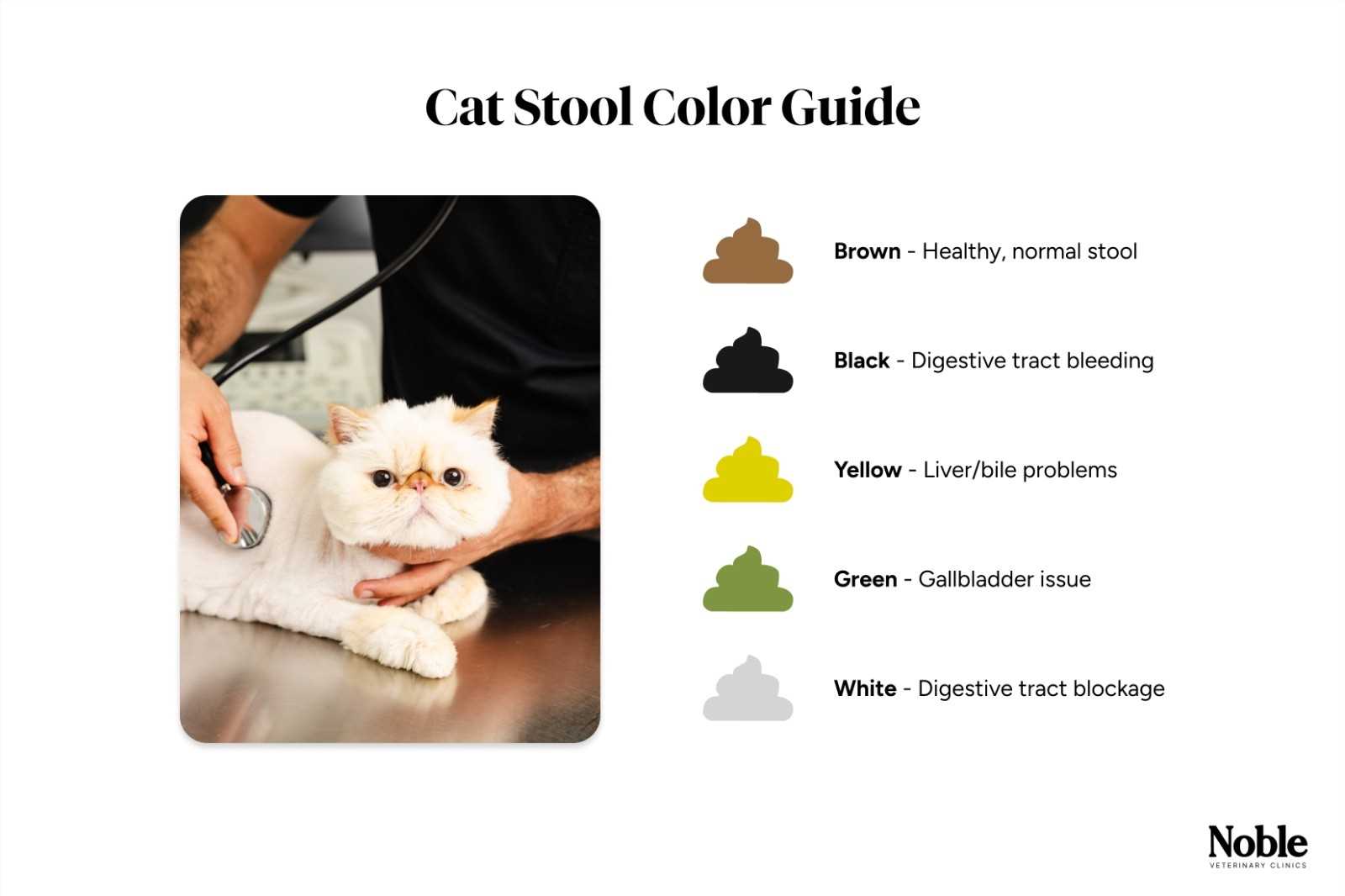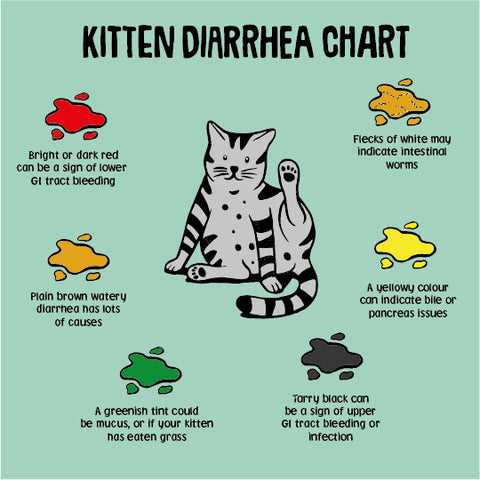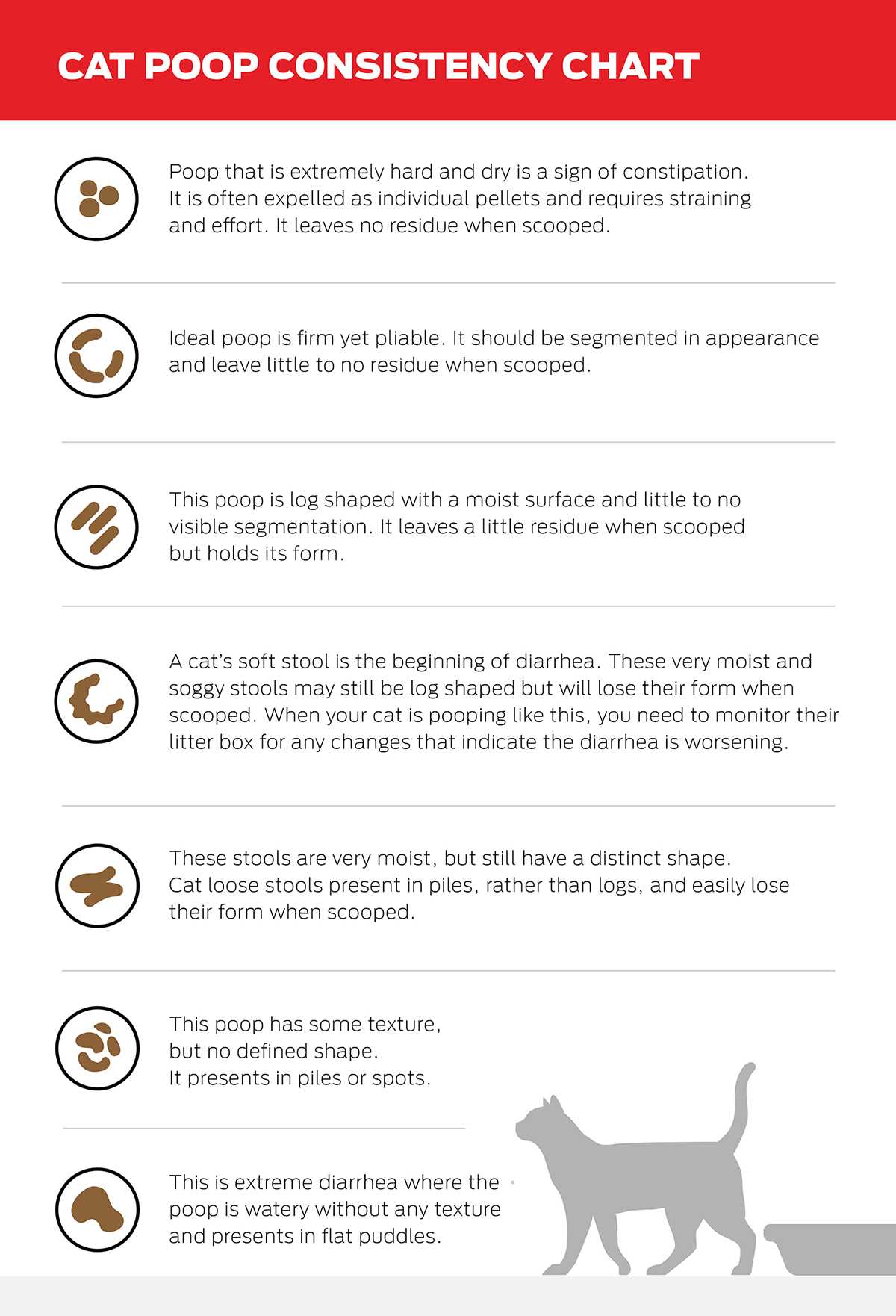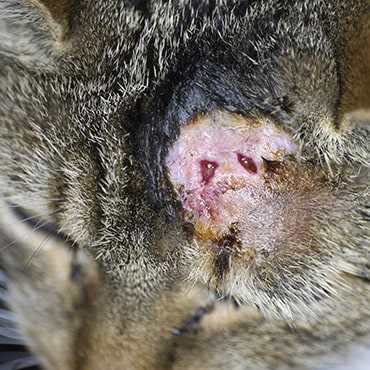



It’s crucial to monitor dietary changes closely. Frequent consumption of new foods, especially those rich in fats, can upset the stomach. Stick to a consistent diet and introduce any new treats gradually to avoid digestive issues.
Stress plays a significant role in gastrointestinal disturbances. Environmental changes, such as moving to a new home or the arrival of a new pet, can lead to anxiety and result in digestive upset. Creating a calm and secure environment is essential for maintaining digestive health.
Regular vet check-ups are necessary. Infections, parasites, or underlying health conditions may also contribute to loose stools. If symptoms persist beyond a day or two, seeking professional advice is always the best course of action.
Hydration is key. Ensure access to fresh water to prevent dehydration, especially during bouts of digestive upset. Consider incorporating wet food into the diet for additional moisture.
Lastly, be cautious with treats and human food. Many common snacks can be harmful and lead to digestive problems. Always research before sharing from your plate.
Understanding Digestive Issues
In my experience as an 8-year-old Scottish Fold, I’ve seen various factors lead to stomach troubles. One common cause is dietary changes. Introducing new food too quickly can upset the digestive balance. Always transition gradually to avoid discomfort.
Another factor is food intolerance. Some furry friends may have sensitivities to certain ingredients, like dairy or grains. Monitoring reactions to different foods can help pinpoint the culprit.
Environmental Influences
Stress is a significant contributor to digestive disturbances. Changes in the home, like new pets or moving furniture, can trigger anxiety. Providing a calm space and routine can ease tension.
Additionally, exposure to toxins, whether from plants or chemicals, can wreak havoc on the digestive system. Keeping hazardous materials out of reach is essential for overall health. For more on maintaining a clean environment, check out this guide on how to clean clothes with cat urine.
Health Considerations
Underlying medical conditions, such as parasites or infections, need attention. Regular vet check-ups can help catch these issues early. Monitoring behavior and appetite provides valuable insights into health status.
Understanding these aspects can aid in preventing digestive issues. For those curious about daily habits, exploring how much do cats sleep by age can offer insights into our routines and health indicators.
Common Dietary Triggers for Feline Digestive Issues
Switching to a new food brand can lead to an upset stomach. Gradually introducing changes over a week helps ease transitions.
Some ingredients, like dairy products, often don’t sit well. Many of us are lactose intolerant, leading to messy moments. Avoid giving milk treats unless you’re sure it’s safe.
High-Fat Foods
Rich meals may overwhelm the digestive system. Fatty scraps from human meals should be avoided. Stick to high-quality, balanced cat food to maintain digestive harmony.
Grains and Fillers
Many commercial cat foods contain grains that aren’t suitable. Look for options with minimal fillers. Ensure the primary ingredients are meat-based for optimal health.
Lastly, sudden changes in diet or overindulgence can wreak havoc. Monitor food intake and make gradual adjustments to keep everything running smoothly.
Impact of Stress on Feline Digestive Health

Stress can disrupt the delicate balance of a feline’s digestive system, leading to gastrointestinal upset. Common stressors include changes in environment, loud noises, unfamiliar guests, or the presence of other animals. Identifying and managing these triggers is key to maintaining optimal health.
Signs of Stress-Related Digestive Issues
Watch for the following indicators that may suggest stress is affecting digestion:
- Increased frequency of bowel movements
- Soft or loose stools
- Decreased appetite or sudden food aversions
- Hiding or withdrawal behavior
Strategies to Minimize Stress
Implement these strategies to help create a calm environment:
- Establish a consistent routine for feeding and playtime.
- Provide a safe, quiet space with cozy bedding for relaxation.
- Avoid sudden changes in the household, such as new pets or furniture rearrangements.
- Consider calming products, like pheromone diffusers, to promote relaxation.
Monitoring for signs of stress and taking proactive measures can significantly improve digestive well-being. Regular vet check-ups also help in addressing underlying issues that may contribute to stress-related symptoms.
Identifying Parasitic Infections in Cats

Watch for signs like weight loss, vomiting, or changes in appetite. These can indicate a possible parasitic issue. Regular stool checks can reveal eggs or larvae, which are telltale signs of unwanted guests in the digestive system.
Common Symptoms to Observe
Excessive grooming or scooting may suggest irritation caused by parasites. Diarrhea that fluctuates between normal and loose can also be a symptom. If you notice a foul odor accompanying bowel movements, it’s time to investigate further.
Testing and Diagnosis

A vet can perform fecal tests to identify specific parasites. This usually involves collecting a sample for analysis. Treatment options vary based on the type of parasite found, ranging from dewormers to specialized medications. Always follow your veterinarian’s advice for the best outcome.
When to Seek Veterinary Help for Diarrhoea in Cats
If you notice persistent loose stools lasting more than a day or two, it’s time to consult a veterinarian. Prolonged gastrointestinal upset can lead to dehydration, which is serious. Pay close attention to other signs like vomiting, lethargy, or a lack of appetite; these indicate a need for immediate professional care.
Should you see blood or mucus in the stool, do not hesitate to reach out for help. This can be a sign of a more serious underlying condition that requires prompt evaluation and treatment.
Monitoring weight changes is key. If there’s noticeable weight loss or if your beloved pet seems to be drinking excessive water, these are signals that warrant a trip to the clinic. Dehydration can escalate quickly and must be addressed to ensure health and safety.
Look out for any sudden changes in behavior, such as increased hiding or aggression. These behavioral shifts can indicate discomfort or pain, necessitating a professional assessment.
In cases where your furry friend has recently ingested something unusual or potentially harmful, contacting a veterinarian is crucial. Quick action can prevent complications from poisoning or gastrointestinal blockages.
Video:
It’s crucial to monitor dietary changes closely. Frequent consumption of new foods, especially those rich in fats, can upset the stomach. Stick to a consistent diet and introduce any new treats gradually to avoid digestive issues.
Stress plays a significant role in gastrointestinal disturbances. Environmental changes, such as moving to a new home or the arrival of a new pet, can lead to anxiety and result in digestive upset. Creating a calm and secure environment is essential for maintaining digestive health.
Regular vet check-ups are necessary. Infections, parasites, or underlying health conditions may also contribute to loose stools. If symptoms persist beyond a day or two, seeking professional advice is always the best course of action.
Hydration is key. Ensure access to fresh water to prevent dehydration, especially during bouts of digestive upset. Consider incorporating wet food into the diet for additional moisture.
Lastly, be cautious with treats and human food. Many common snacks can be harmful and lead to digestive problems. Always research before sharing from your plate.
Understanding Digestive Issues
In my experience as an 8-year-old Scottish Fold, I’ve seen various factors lead to stomach troubles. One common cause is dietary changes. Introducing new food too quickly can upset the digestive balance. Always transition gradually to avoid discomfort.
Another factor is food intolerance. Some furry friends may have sensitivities to certain ingredients, like dairy or grains. Monitoring reactions to different foods can help pinpoint the culprit.
Environmental Influences
Stress is a significant contributor to digestive disturbances. Changes in the home, like new pets or moving furniture, can trigger anxiety. Providing a calm space and routine can ease tension.
Additionally, exposure to toxins, whether from plants or chemicals, can wreak havoc on the digestive system. Keeping hazardous materials out of reach is essential for overall health. For more on maintaining a clean environment, check out this guide on how to clean clothes with cat urine.
Health Considerations
Underlying medical conditions, such as parasites or infections, need attention. Regular vet check-ups can help catch these issues early. Monitoring behavior and appetite provides valuable insights into health status.
Understanding these aspects can aid in preventing digestive issues. For those curious about daily habits, exploring how much do cats sleep by age can offer insights into our routines and health indicators.
Common Dietary Triggers for Feline Digestive Issues
Switching to a new food brand can lead to an upset stomach. Gradually introducing changes over a week helps ease transitions.
Some ingredients, like dairy products, often don’t sit well. Many of us are lactose intolerant, leading to messy moments. Avoid giving milk treats unless you’re sure it’s safe.
High-Fat Foods
Rich meals may overwhelm the digestive system. Fatty scraps from human meals should be avoided. Stick to high-quality, balanced cat food to maintain digestive harmony.
Grains and Fillers
Many commercial cat foods contain grains that aren’t suitable. Look for options with minimal fillers. Ensure the primary ingredients are meat-based for optimal health.
Lastly, sudden changes in diet or overindulgence can wreak havoc. Monitor food intake and make gradual adjustments to keep everything running smoothly.
Impact of Stress on Feline Digestive Health

Stress can disrupt the delicate balance of a feline’s digestive system, leading to gastrointestinal upset. Common stressors include changes in environment, loud noises, unfamiliar guests, or the presence of other animals. Identifying and managing these triggers is key to maintaining optimal health.
Signs of Stress-Related Digestive Issues
Watch for the following indicators that may suggest stress is affecting digestion:
- Increased frequency of bowel movements
- Soft or loose stools
- Decreased appetite or sudden food aversions
- Hiding or withdrawal behavior
Strategies to Minimize Stress
Implement these strategies to help create a calm environment:
- Establish a consistent routine for feeding and playtime.
- Provide a safe, quiet space with cozy bedding for relaxation.
- Avoid sudden changes in the household, such as new pets or furniture rearrangements.
- Consider calming products, like pheromone diffusers, to promote relaxation.
Monitoring for signs of stress and taking proactive measures can significantly improve digestive well-being. Regular vet check-ups also help in addressing underlying issues that may contribute to stress-related symptoms.
Identifying Parasitic Infections in Cats

Watch for signs like weight loss, vomiting, or changes in appetite. These can indicate a possible parasitic issue. Regular stool checks can reveal eggs or larvae, which are telltale signs of unwanted guests in the digestive system.
Common Symptoms to Observe
Excessive grooming or scooting may suggest irritation caused by parasites. Diarrhea that fluctuates between normal and loose can also be a symptom. If you notice a foul odor accompanying bowel movements, it’s time to investigate further.
Testing and Diagnosis

A vet can perform fecal tests to identify specific parasites. This usually involves collecting a sample for analysis. Treatment options vary based on the type of parasite found, ranging from dewormers to specialized medications. Always follow your veterinarian’s advice for the best outcome.
When to Seek Veterinary Help for Diarrhoea in Cats
If you notice persistent loose stools lasting more than a day or two, it’s time to consult a veterinarian. Prolonged gastrointestinal upset can lead to dehydration, which is serious. Pay close attention to other signs like vomiting, lethargy, or a lack of appetite; these indicate a need for immediate professional care.
Should you see blood or mucus in the stool, do not hesitate to reach out for help. This can be a sign of a more serious underlying condition that requires prompt evaluation and treatment.
Monitoring weight changes is key. If there’s noticeable weight loss or if your beloved pet seems to be drinking excessive water, these are signals that warrant a trip to the clinic. Dehydration can escalate quickly and must be addressed to ensure health and safety.
Look out for any sudden changes in behavior, such as increased hiding or aggression. These behavioral shifts can indicate discomfort or pain, necessitating a professional assessment.
In cases where your furry friend has recently ingested something unusual or potentially harmful, contacting a veterinarian is crucial. Quick action can prevent complications from poisoning or gastrointestinal blockages.
Video:
It’s crucial to monitor dietary changes closely. Frequent consumption of new foods, especially those rich in fats, can upset the stomach. Stick to a consistent diet and introduce any new treats gradually to avoid digestive issues.
Stress plays a significant role in gastrointestinal disturbances. Environmental changes, such as moving to a new home or the arrival of a new pet, can lead to anxiety and result in digestive upset. Creating a calm and secure environment is essential for maintaining digestive health.
Regular vet check-ups are necessary. Infections, parasites, or underlying health conditions may also contribute to loose stools. If symptoms persist beyond a day or two, seeking professional advice is always the best course of action.
Hydration is key. Ensure access to fresh water to prevent dehydration, especially during bouts of digestive upset. Consider incorporating wet food into the diet for additional moisture.
Lastly, be cautious with treats and human food. Many common snacks can be harmful and lead to digestive problems. Always research before sharing from your plate.
Understanding Digestive Issues
In my experience as an 8-year-old Scottish Fold, I’ve seen various factors lead to stomach troubles. One common cause is dietary changes. Introducing new food too quickly can upset the digestive balance. Always transition gradually to avoid discomfort.
Another factor is food intolerance. Some furry friends may have sensitivities to certain ingredients, like dairy or grains. Monitoring reactions to different foods can help pinpoint the culprit.
Environmental Influences
Stress is a significant contributor to digestive disturbances. Changes in the home, like new pets or moving furniture, can trigger anxiety. Providing a calm space and routine can ease tension.
Additionally, exposure to toxins, whether from plants or chemicals, can wreak havoc on the digestive system. Keeping hazardous materials out of reach is essential for overall health. For more on maintaining a clean environment, check out this guide on how to clean clothes with cat urine.
Health Considerations
Underlying medical conditions, such as parasites or infections, need attention. Regular vet check-ups can help catch these issues early. Monitoring behavior and appetite provides valuable insights into health status.
Understanding these aspects can aid in preventing digestive issues. For those curious about daily habits, exploring how much do cats sleep by age can offer insights into our routines and health indicators.
Common Dietary Triggers for Feline Digestive Issues
Switching to a new food brand can lead to an upset stomach. Gradually introducing changes over a week helps ease transitions.
Some ingredients, like dairy products, often don’t sit well. Many of us are lactose intolerant, leading to messy moments. Avoid giving milk treats unless you’re sure it’s safe.
High-Fat Foods
Rich meals may overwhelm the digestive system. Fatty scraps from human meals should be avoided. Stick to high-quality, balanced cat food to maintain digestive harmony.
Grains and Fillers
Many commercial cat foods contain grains that aren’t suitable. Look for options with minimal fillers. Ensure the primary ingredients are meat-based for optimal health.
Lastly, sudden changes in diet or overindulgence can wreak havoc. Monitor food intake and make gradual adjustments to keep everything running smoothly.
Impact of Stress on Feline Digestive Health

Stress can disrupt the delicate balance of a feline’s digestive system, leading to gastrointestinal upset. Common stressors include changes in environment, loud noises, unfamiliar guests, or the presence of other animals. Identifying and managing these triggers is key to maintaining optimal health.
Signs of Stress-Related Digestive Issues
Watch for the following indicators that may suggest stress is affecting digestion:
- Increased frequency of bowel movements
- Soft or loose stools
- Decreased appetite or sudden food aversions
- Hiding or withdrawal behavior
Strategies to Minimize Stress
Implement these strategies to help create a calm environment:
- Establish a consistent routine for feeding and playtime.
- Provide a safe, quiet space with cozy bedding for relaxation.
- Avoid sudden changes in the household, such as new pets or furniture rearrangements.
- Consider calming products, like pheromone diffusers, to promote relaxation.
Monitoring for signs of stress and taking proactive measures can significantly improve digestive well-being. Regular vet check-ups also help in addressing underlying issues that may contribute to stress-related symptoms.
Identifying Parasitic Infections in Cats

Watch for signs like weight loss, vomiting, or changes in appetite. These can indicate a possible parasitic issue. Regular stool checks can reveal eggs or larvae, which are telltale signs of unwanted guests in the digestive system.
Common Symptoms to Observe
Excessive grooming or scooting may suggest irritation caused by parasites. Diarrhea that fluctuates between normal and loose can also be a symptom. If you notice a foul odor accompanying bowel movements, it’s time to investigate further.
Testing and Diagnosis

A vet can perform fecal tests to identify specific parasites. This usually involves collecting a sample for analysis. Treatment options vary based on the type of parasite found, ranging from dewormers to specialized medications. Always follow your veterinarian’s advice for the best outcome.
When to Seek Veterinary Help for Diarrhoea in Cats
If you notice persistent loose stools lasting more than a day or two, it’s time to consult a veterinarian. Prolonged gastrointestinal upset can lead to dehydration, which is serious. Pay close attention to other signs like vomiting, lethargy, or a lack of appetite; these indicate a need for immediate professional care.
Should you see blood or mucus in the stool, do not hesitate to reach out for help. This can be a sign of a more serious underlying condition that requires prompt evaluation and treatment.
Monitoring weight changes is key. If there’s noticeable weight loss or if your beloved pet seems to be drinking excessive water, these are signals that warrant a trip to the clinic. Dehydration can escalate quickly and must be addressed to ensure health and safety.
Look out for any sudden changes in behavior, such as increased hiding or aggression. These behavioral shifts can indicate discomfort or pain, necessitating a professional assessment.
In cases where your furry friend has recently ingested something unusual or potentially harmful, contacting a veterinarian is crucial. Quick action can prevent complications from poisoning or gastrointestinal blockages.








